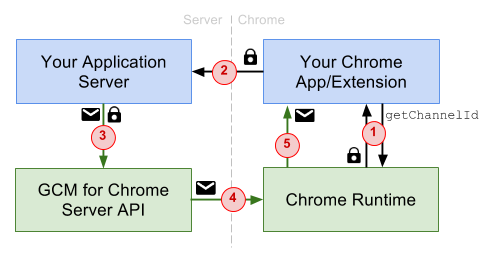At last year’s I/O, Google launched its Cloud Messaging push notification service for Android. This week, it extended this service to Chrome and Chrome OS, which, Google says, allows Chrome apps and extension developers to wake up their apps remotely and/or send alerts to users.
While mobile app developers have long been familiar with the concept of push notifications, this is a pretty novel service for web developers. Unless a Chrome app or extension is running in the background and pulling down information from the service, after all, users can’t usually receive alerts like news updates or stock ticker notifications from the developers’ servers.
Google product manager Mark Scott writes in his announcement that “event pages keep apps and extensions efficient by allowing them to respond to a variety of events, such as timers or navigation to a particular site, without having to remain running persistently.” This works, but it does consume bandwidth and reduce battery life if you are on a laptop or Chromebook.
Cloud Messaging for Chrome, on the other hand, allows developers to push messages directly to signed-in users. As long as the user is signed in and on a machine where the app or extension is installed, the alerts should automatically start appearing.
To get developers started with this service, the Chrome team has published a couple of sample apps, as well as a pretty in-depth tutorial.

